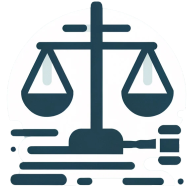What Are Examples of Successful Corporate Governance Reforms?
Navigating the complexities of corporate governance reforms is like mastering a sophisticated ballet—each decision, each policy, and each committee must move in perfect harmony to create an organization that is resilient, ethical, and efficient. The insights that follow are a must-read for anyone in leadership roles, especially if you hold positions such as Co-founder and Personal Injury Attorney, or Founder & CEO. The journey begins with understanding the necessity of establishing clear decision-making protocols and concludes with adopting robust compliance and ethical standards, encapsulating four crucial insights along the way. The article is a treasure trove of expert opinions that unravel the intricacies faced by legal leaders in today's multifaceted corporate environments.
- Establish Clear Decision-Making Protocols
- Implement Comprehensive Safety Management Systems
- Create Specialized Governance Committees
- Adopt Robust Compliance and Ethical Standards
Establish Clear Decision-Making Protocols
One success story involved assisting a mid-sized business in establishing unambiguous decision-making protocols. The organization's lack of formal governance policies confused the responsibility for critical decisions, which caused internal friction and delays.
I implemented a corporate governance framework that delineated the duties and responsibilities of executives and board members. By implementing formal meeting procedures and establishing accountability, we enhanced the speed and transparency of decision-making. The company experienced a substantial increase in internal trust and fewer project-execution delays.
The lesson learned was that clarity in governance facilitates efficiency and employee confidence. Teams can concentrate on their work without second-guessing decisions, which leads to more efficient operations.

Implement Comprehensive Safety Management Systems
As an experienced business attorney, I have helped numerous clients implement corporate governance reforms to strengthen oversight, compliance, and risk management. For example, one manufacturing client struggled with safety incidents and a lack of quality controls. I worked with leadership to establish a safety-management system, including standard procedures, mandatory training, daily audits, and executive reporting. This drove a major turnaround, eliminating lost-time accidents and reducing defects by 75% within a year.
In another case, a construction firm faced cost overruns and scheduling issues due to minimal oversight. I helped implement weekly progress meetings, key performance indicators, and an oversight committee to approve change orders. The improved transparency and accountability got the project back on budget ahead of schedule.
Effective corporate governance hinges on leadership support to drive real change. The specific strategies differ across companies and industries, but the principles are the same: oversight, accountability, and transparency. By implementing governance reforms like progress tracking, performance metrics, standardization, and executive reporting, organizations can turn around poorly performing, high-risk areas of their business. With the right approach, governance improvements yield substantial benefits.

Create Specialized Governance Committees
When our firm started to grow exponentially, we found that we needed more structure and accountability. We implemented a comprehensive governance framework to ensure our firm maintained its high standards while scaling effectively.
One of our reforms was to create specialized committees within the firm that focused on different aspects of governance—such as ethics, compliance, and client satisfaction. Each committee was led by senior partners and involved members from various practice areas, ensuring diverse perspectives. This improved decision-making and gave our staff a greater sense of ownership over the firm's operations.
We also introduced a transparent reporting structure for decision-making and resource allocation, which increased accountability and enhanced our firm's ability to identify risks early and manage them efficiently. One of the most impactful outcomes was the improvement in client trust and retention, as they could see our firm was committed to ethical standards and effective governance.
Our firm's culture has never been stronger. This created stronger leadership pipelines and supports a collaborative environment that allows us to stay nimble and client-focused while growing responsibly.

Adopt Robust Compliance and Ethical Standards
One notable success story I encountered involved a midsized pharmaceutical company facing significant challenges related to compliance and transparency. The organization had been struggling with various regulatory requirements and was at risk of losing key contracts due to its inadequate governance practices.
Recognizing the need for change, the leadership team decided to implement comprehensive corporate governance reforms. This process began with conducting a thorough assessment of the existing governance framework, identifying key weaknesses in areas such as compliance oversight, risk management, and board accountability.
The organization established a dedicated compliance committee, which included representatives from legal, finance, and operations. This committee was responsible for developing and overseeing the implementation of new policies and procedures. They introduced a robust training program for employees at all levels, emphasizing the importance of compliance and ethical conduct in the workplace.
The company adopted a new code of conduct that clearly outlined expectations for ethical behavior and decision making. They also implemented a whistleblower policy to encourage employees to report any unethical practices without fear of retaliation.
As a result of these reforms, the company significantly improved its compliance posture. They not only met regulatory requirements but also enhanced their reputation among clients and stakeholders. The proactive approach led to renewed contracts and partnerships, which contributed to a stronger financial performance.
This experience underscored the importance of corporate governance in fostering a culture of accountability and integrity within an organization. By prioritizing governance reforms, the company navigated regulatory challenges and built a foundation for sustainable success.


